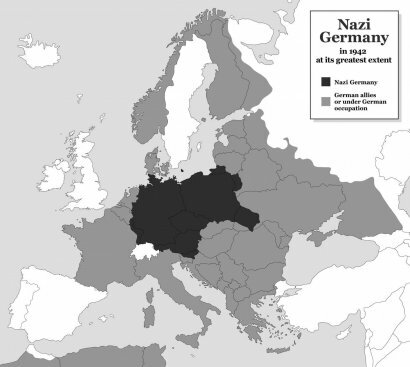Definition of Nazi Germany
Miscellanea / / July 04, 2021
By Javier Navarro, in Aug. 2017
 From 1933 to 1945 Germany was ruled by Adolf Hitler, the leader of the National Socialist Party, also known as the Nazi party. During this period, Germany unleashed World War II and starred in one of the most dramatic episodes in human history, the extermination of millions of Jews.
From 1933 to 1945 Germany was ruled by Adolf Hitler, the leader of the National Socialist Party, also known as the Nazi party. During this period, Germany unleashed World War II and starred in one of the most dramatic episodes in human history, the extermination of millions of Jews.
Some of the keys to understanding Nazi Germany
The Nazi party launched a powerful propaganda system to control German public opinion. In this sense, the Jews were considered to be the culprits of the economic crisis that the country was experiencing at the beginning of the 1930s and systematically the Nazi propaganda officer (Joseph Goebbels) activated an intense campaign anti-Semitic.
The government Nazi controlled the artistic manifestations, managed at will the media of communication and used the sport of masses to entertain the whole of society (the Olympic Games 1936 in Berlin were a demonstration in this regard).
As in Stalin's Soviet Union or Mao's China, in Nazi Germany the figure of Adolf Hitler was venerated by the whole of society. This phenomenon is known as the cult of
personality. For the Germans Hitler was not simply a ruler, but was the leader of the people or führer.The Nazi party spread the theory of the racial supremacy of the Aryans and through this pseudoscientific approach there was already a justification theoretical to classify the population and to exterminate all those social groups considered inferior. In this way, the persecution of Jews, gypsies or homosexuals was based on this racist theory.
The popularity of the Nazis in Germany is a complex phenomenon, but it was largely due to the country's economic recovery
In the years before Nazism Germany had an unemployment rate higher than 40%, there was hyperinflation and the German state had to pay a millionaire debt for war reparations after World War I. The 1933 elections were won by the Nazi party with a compelling motto: bread and work. In a few years unemployment and inflation were drastically reduced.
To fulfill his promises, Hitler adopted measures that soon led to the economic recovery of the country:
 1) the debt for war reparations was stopped and the money was invested in large infrastructures throughout the country
1) the debt for war reparations was stopped and the money was invested in large infrastructures throughout the country
2) as a consequence, the high level of unemployment was reduced and
3) Jewish property was massively expropriated by the state.
In the global context of a deep economic crisis caused by the Great Depression, Germany experienced years of economic recovery and general illusion. Of course, the weather optimism faded little by little as Germany began its expansion into Europe and the German people found themselves immersed in a world war.
Photos: Fotolia - Fuxart / Peter Hermes Furian
Issues in Nazi Germany
